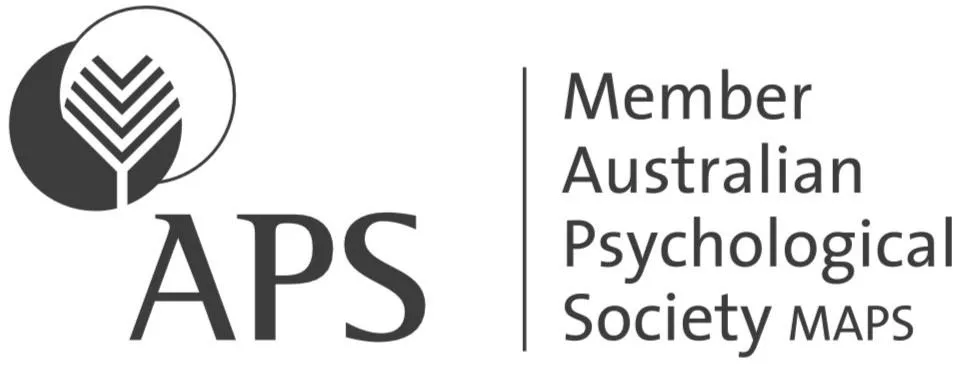Our Privacy Policy
Family Counselling Support Network
Family Counselling Support Network is committed to providing quality services to you and this policy outlines our ongoing obligations to you in respect of how we manage your Personal Information.
We have adopted the National Privacy Principles (NPPs) contained in the Privacy Act 1988 (Cth) (the Privacy Act). The NPPs govern the way in which we collect, use, disclose, store, secure and dispose of your Personal Information.
A copy of the National Privacy Principles may be obtained from the website of The Office of the Australian Information Commissioner at www.aoic.gov.au
WHAT IS PERSONAL INFORMATION AND WHY DO WE COLLECT IT?
Personal Information is information or an opinion that identifies an individual. Examples of Personal Information we collect include: names, addresses, email addresses, phone numbers.
This Personal Information is obtained in many ways including by telephone, by email, and via our website www.familycounsellingsupportnetwork.com
We collect your Personal Information for the primary purpose of providing our services to you, and marketing. We may also use your Personal Information for secondary purposes closely related to the primary purpose, in circumstances where you would reasonably expect such use or disclosure. You may unsubscribe from our mailing/marketing lists at any time by contacting us in writing.
When we collect Personal Information we will, where appropriate and where possible, explain to you why we are collecting the information and how we plan to use it.
SENSITIVE INFORMATION
Sensitive information is defined in the Privacy Act to include information or opinion about such things as an individual's racial or ethnic origin, political opinions, membership of a political association, religious or philosophical beliefs, membership of a trade union or other professional body, criminal record or health information.
Sensitive information will be used by us only:
• For the primary purpose for which it was obtained
• For a secondary purpose that is directly related to the primary purpose
• With your consent; or where required or authorised by law.
DISCLOSURE OF PERSONAL INFORMATION
Your Personal Information may be disclosed in a number of circumstances including the following:
• Third parties where you consent to the use or disclosure; and
• Where required or authorised by law.
SECURITY OF YOUR PERSONAL INFORMATION
Your Personal Information is stored in a manner that reasonably protects it from misuse and loss and from unauthorized access, modification or disclosure.
When your Personal Information is no longer needed for the purpose for which it was obtained, we will take reasonable steps to destroy or permanently de-identify your Personal Information. However, most of the Personal Information is or will be stored in client files which will be kept by us for a minimum of 7 years.
ACCESS TO YOUR PERSONAL INFORMATION
You may access the Personal Information we hold about you and to update and/or correct it, subject to certain exceptions. If you wish to access your Personal Information, please contact us in writing. We will not charge any fee for your access request, but may charge an administrative fee for providing a copy of your Personal Information.
In order to protect your Personal Information we may require identification from you before releasing the requested information.
MAINTAINING THE QUALITY OF YOUR PERSONAL INFORMATION
It is an important to us that your Personal Information is up to date. We will take reasonable steps to make sure that your Personal Information is accurate, complete and up-to-date. If you find that the information we have is not up to date or is inaccurate, please advise us as soon as practicable so we can update our records and ensure we can continue to provide quality services to you.
POLICY UPDATES
This Policy may change from time to time and is available on our website.
PRIVACY POLICY COMPLAINTS AND ENQUIRIES
If you have any queries or complaints about our Privacy Policy
please contact us at info@familycounsellingsupportnetwork.com
Join the FREE Newsletter
We welcome you to SIGN UP to receive our monthly newsletter where we share some really useful resources, tips and updates on our upcoming workshops.

Questions about our
Services?
Medicare rebate or private medical insurance claim for psychological services?
Most clients prefer to book directly with with our counsellors. No referral is required to access this counselling service.
During the first session, you can discuss the benefits of seeking a Mental Health Care Plan from your GP should you wish to pursue this path moving forward and you are booking with a registered psychologist. If you require a Mental Health Care Plan (MHCP) you will need to make a long appointment with your GP and they will make an assessment about whether you are eligible.
All of our registered psychologists are registered with Medicare and you will need a referral from a GP if you wish to claim Medicare rebates. Under the Better Access program you can receive a partial rebate for up to 10 individual sessions in a calendar year.
All our psychologists are registered with private health insurance providers in Australia. If you have private health insurance, you may be eligible to claim rebates for psychological sessions. The level of cover and any applicable waiting periods vary between providers and depends on your extras cover policy.
To find out if you are eligible and/or how much funding you are entitled to claim for psychological sessions, please contact your private health insurance.
Where applicable, some of our psychologists also see clients who are self-managed or plan-managed through NDIS at the current rate for NDIS.
Cancellation or missed sessions policy
Given the nature of our support services, last minute cancellations are costly, and it means that other clients may miss out on receiving the required support. For cancellations within 48 hours of the scheduled appointment there is a $65 part fee payment. For less than 24 hours cancellation notice or a non-show, the full session fee will need to be charged. These fees are refunded however if the session can be filled at the last minute.
How are your counselling and coaching sessions held?
We know our clients are time poor. For your convenience, all our counselling or coaching sessions are now available online via Zoom.
You can book your appointment online via this website.
Zoom allows us to connect with you via video and audio. It just requires you to click on a link to join. You can sign up to Zoom to create a FREE account and download the Zoom Client for Meetings. Zoom does require internet connections.
After you book you will be sent a reminder about the booking and emailed a link to connect at the booked time. You are also likely to be sent a client information form to complete prior to your initial consultation to enable our Counsellors and Coaches to be better prepared for your first meeting.
If you are unable to make any of the dates available, please email us to see if we can accommodate an alternate time for you: [email protected]
If you live in Brisbane or the Gold Coast, Queensland, we are available for face to face consultations. Please email us at [email protected] if you would like to arrange an in person appointment.

Webinars - how they are received, transcripts and worksheets
Our clients have requested webinars and programs for years that allow them to access excellent support and guidance and a toolkit they can use to move forward. Many of our clients are time poor so these webinars give them the chance to get the support and resources in their time. The webinars can be purchased on line. The link, transcript and workbooks/worksheets and videos (where applicable)are then sent with the email. Sign up to our email today to receive updates on all our webinars, programs and resources.

Catch up on our latest blogs

Are they gaslighting me?
ARE THEY GASLIGHTING, LOVE BOMBING OR HOOVERING?
“That never happened. Have you taken your meds?”
“You’re crazy. That’s not what happened.”
“I only told you that you were fat because you I would hate you to let yourself go.”
“I never told you that.”
“You’re too sensitive. I was only joking.”
Are you often thinking your mind is playing tricks on you? Are you starting to question your own sanity or losing your memory? If any of the above statements sound familiar, you are likely the victim of gaslighting. It’s an emotional abuse tactic that can leave you unsure about yourself, others, and life in general. If you don’t address it, you can have long-lasting effects, emotionally and physically. Counselling can help you understand what you are experiencing, help you set boundaries and reach a decision about the relationship which feels right for you.
What is gaslighting?
Gaslighting is an actual, intentional, and serious form of emotional, psychological abuse. It is a psychological manipulation tactic someone uses to control and manipulate a victim by making them doubt their memories, perception of reality and judgments.
It can occur in romantic, platonic and family relationships – or even at work.
Often victims of gaslighting are not even aware that this is happening to them because it has been happening for so long, in a slow, covert fashion.
How Does It Begin?
A relationship with a gas lighter may seem to start out quite well. They may praise you, the victim, on a first date and very quickly confide in you. This is where the manipulation begins since, disclosure, before any real intimacy has been established, results in trust being quickly established. This tactic is known as ‘love bombing’. Once you become fully engaged with the gas lighter, you become vulnerable and then the next phase of manipulation often begins.
COMMON GASLIGHTING TECHNIQUES
Do you recognise any of the following most common gaslighting techniques?
They blatantly lie to you with a straight face. The abuser blatantly and habitually lies to change your reality. Even when you know they are lying, they can convince you otherwise, which in turn makes you start second-guessing yourself. If you call them a liar they turn around and call you a liar or insist they lied for a good reason for example to protect your feelings or theirs.
They attack things important to you. They might criticize your job, make snide comments about you, your family or friends. These remarks are meant to make you feel insecure and inadequate.
They deny their bad behaviour – their lying, hurting your feelings, or doing anything wrong. They insist that you misunderstood them, that you’re remembering things incorrectly, or that you’re making things up to hurt them.
Their actions don’t match their words. They may insist they support you, but always criticise your choices.
They will target your insecurities to make you feel weak about yourself.
They spread rumours and speak poorly about you online or in face to face conversations. They will often portray themselves as the victims to others.
They can’t stand criticism themselves and will take it as a personal attack, no matter how respectfully you complain about their behaviour.
They project on you – for example the abuser is cheating. Instead of admitting to the affair, they’ll accuse you of being unfaithful. You end up having to defend yourself rather than seeing what they’ve been doing to you.
They manipulate your relationships, whether through isolation or through groupthink type behaviours. They will tell you that your family members don’t really love you and claim that they are liars. They may even try to convince everyone around you that you seem emotionally unstable or “crazy.”
They can confuse you with sudden kindness to distract you from their bad behaviour. One minute, they may cut you down and the next, they praise you.
They wear you down until you just give up – you stop arguing or defending yourself since you feel so defeated.
SIGNS YOU ARE A VICTIM OF GASLIGHTING
- You constantly second guess yourself.
- You wonder if you are just overly sensitive or too hormonal.
- You create excuses for the gas lighters behaviour and their actions.
- You stop trusting your own judgement and recollection of events, beliefs, and perspectives.
- You start to wonder if you are losing your memory, regularly confused, or going ‘crazy.’
WHAT IS ”HOOVERING”?
When you try to leave the gas lighting relationship, they may use the ‘hoovering’ tactic which involves excessive praise, expressions of love, showers of compliments and fervent promises of the ways in which they will make positive changes in the relationship. Unfortunately, it does not take long for old habits and behavioural patterns to resurface, once you commit to staying. Their goal is to always keep you locked in to their control.
WHAT CAN YOU DO TO STOP BEING A VICTIM?
If you identify with any of the signs, here are some tips to take back control of your life and your reality:
· You need to stand firm and not let their denials cloud your thinking and actions.
· Remember you are not responsible for someone else’s behaviour. It is not your fault.
· Trust your own judgment and believe in yourself.
· Acknowledge the feelings you are having are real.
· Remind yourself that you deserve to be respected and supported by the people in your life.
· If someone displays a pattern of behaviour, trust the pattern over anything that person says.
· Don’t back down if you believe your criticism is fair, even if the gas lighter won’t change.
· Set clear boundaries to protect yourself and expect them to be respected,
· Document what is occurring so you can help track the reality.
· Ask someone independent, with whom you are close and who you trust, if they think you are being manipulated by the abuser.
· Realise you will never win an argument with this person or get any apology.
· Limit contact with the gas lighter. Consider ending or pulling back from the relationship if you want to, especially if the gas lighter refuses to change their behaviour.
If, despite attempts to move towards a healthier relationship, you still feel blocked in implementing these strategies, then please reach out to our trained team of psychologists and counsellors who can help you plan and strategise to move forward positively. Furthermore, if you feel unsafe because of someone’s controlling behaviour, seek assistance from the police or call 000 if it is an emergency.



We are committed to protecting your personal information and respecting your privacy. This website uses cookies to analyze website traffic and optimise your website experience. By accepting our use of cookies, your data will be aggregated with all other user data.
DISCLAIMER: The material contained on this website is for general educational and information purposes only and is not a substitute for professional legal, financial, medical or psychological advice or care. While every care has been taken in the information provided, no legal responsibility or liability is accepted, warranted or implied by the authors or Family Counselling Support Network and any liability is hereby expressly disclaimed. For specific advice please contact us at [email protected]. All information contained on the website remains the intellectual property of Family Counselling Support Network and is for your personal educational use only. The information must not be reproduced or distributed without the express permission of Family Counselling Support Network.
We are committed to providing an inclusive and accessible environment where people and communities of all identities and backgrounds are accepted, safe and celebrated.
Privacy Policy | Terms and Conditions
